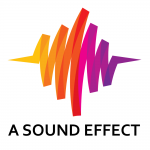
Whenever we think of the elements that make a game memorable, graphics and mechanics are what we most frequently focus on. But somewhere in the backseat, sometimes figuratively, is the music, at work quietly.
Music fills the silence, be it a gritty boss battle, sprawling open world, or indie puzzle title. It fills space, infuses feeling, and stays with us. So, let’s see what soundtracks do to gamers and why this seemingly inconspicuous feature of games is anything but.
Insert image = Mixer Sound Studio Radio – Free photo on Pixabay
The Emotional Pulse of Gaming
How do some soundtracks get you going? That’s not an accident. Music is more than just a soundtrack – music is a psychological device, and game engineers know that. Consider the spooky piano tracks of The Last of Us. Those notes aren’t an afterthought to the story; they’re part of it, signalling loss, hope and perseverance.
Music can make the emotions of a game seem richer and more intense, and it can also make the player feel closer to the story. Even the most sweeping sequences can sound empty without those thoughtfully laid-out music tracks. The music makes each win feel extra; every failure feels more traumatic.
Setting the Scene with Sound
Imagine entering a dark underground in pitch black. Yes, there could be danger in the image, but the suspense is not quite the same with the wrong sounds. Now, throw in a creepy, spooky hum that rises as you pass a door. It is the moment when you are in fear, your heart is racing, and you don’t know what will happen next.
Sounds establish settings for different places and scenes in a game. Music becomes part of the environment, from the whimsical soundtrack of Animal Crossing to the crushing thud of Doom. It makes all spaces feel alive; all-time feels intentional. And the right soundtrack could send you to another universe so you can get lost more easily.
Encouraging Flow and Immersion
You know what psychology says – “flow” – you get caught up in something so much that time doesn’t seem to exist anymore. Video game music does a lot to produce this state for players. When music is in sync with gameplay – speed-ups in action mode, tranquil tracks during dungeon crawls – it keeps people engaged and engaged.
Take rhythm games, like Beat Saber or Guitar Hero. There, the music doesn’t exist; it’s alive. Your movement is tethered to the beat of the soundtrack. This rhythm of voice and movement is also present in non-rhythm games, which creates an ethereal relationship between player and game.
Or imagine the arcadey, building tune that plays while you are playing the 10CRIC Aviator betting app, adding excitement to the experience. Soundtracks can immerse you in whatever is happening on screen and add to the experience, no matter what it may be.
Nostalgia and Lasting Impact
Sometimes, it doesn’t hit you until years later that a soundtrack’s full force kicks in. A familiar song will strike you, and you will immediately return to childhood video games or midnight marathons. It is this nostalgia that makes game soundtracks so magical
Let’s take the Super Mario Bros theme, for instance. Ten years on, it is still one of the most familiar music videos in game history. And that familiar tune isn’t just a sing-song – it’s a beacon of adventure, fun and exploration for millions of gamers. The music also does this uncanny thing of getting drilled into our brains and being reminisced.
Soundtracks as Storytellers
More often than not, a game soundtrack is its own story. Theme and motif are composers’ way of representing characters, locations or concepts, and they assemble in a language that enriches the narrative.
In The Legend of Zelda, for example, every main setting or character has a theme song. That sweet sound of Kokiri Forest contrasting with Ganon’s threatening chorus helps reinforce the game’s story on an unconscious level. These themes shift over time as players move through, reflecting the narrative shifts and adding to the poignancy.
Even in games that don’t have any dialogue or traditional narrative, the music can become a burden on your head. Indie hit Journey is a case in point. Its majestic orchestral soundtrack narrates a story of perseverance and attachment even though the game is not spoken.
Modern Gaming and Adaptive Soundtracks
Just as gaming tech is changing, so too are soundtracks. Game scores are becoming more adaptive – moving and changing depending on what’s happening in the game. The technology takes immersion to the next level, with the music reacting to your actions as you do.
Something such as Red Dead Redemption 2 shows it so well. You are motoring through the Wild West, with music changing gradually to how you move and the terrain. This is not just background music; it’s a reality of the game.
This pragmatism means the music is always in sync, adding agency to the player’s experience. You’re not just playing the game; you’re sculpting its soundtrack.
Conclusion
The future of soundtracks in gaming is bright. Music will only get bigger as virtual reality and other holographic technologies become more prominent in this delineation of player and gameworld. What about a VR game where the soundtrack changes in response not just to what you are doing but also to your heart rate or mood? The possibilities are endless.
Scores aren’t always noticed enough, but their contribution to games is undeniable. They direct how we interact with narratives, bind us to characters, and transport us to other places. The next time you hear yourself singing a song in your favorite game, think about how beautiful it is. Because if it weren’t for the music, gaming would be nothing.
It shapes how you perceive games much more than you imagine. Make sure to listen out for how soundtracks affect the game you are playing from now on – you’ll appreciate them more.








